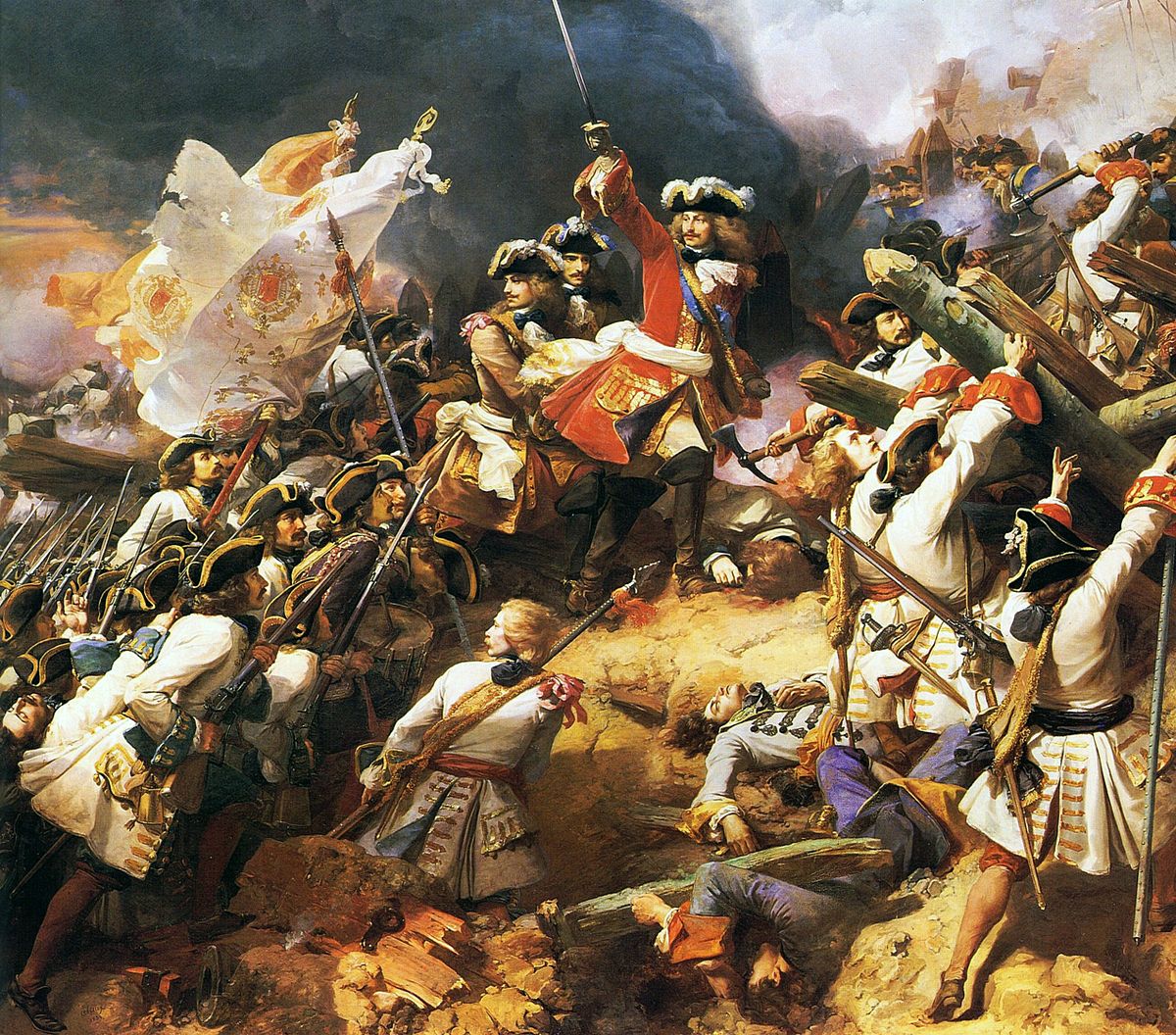
War of Spanish Succession
Central EuropeIn 1701, the War of the Spanish Succession began. The Bourbon Philip of Anjou was designated heir to the throne of Spain as Philip V. The Habsburg Emperor Leopold opposed a Bourbon succession, because the power that such a succession would bring to the Bourbon rulers of France would disturb the delicate balance of power in Europe. Therefore, he claimed the Spanish thrones for himself. England and the Dutch Republic joined Leopold against Louis XIV and Philip of Anjou. The allied forces were led by John Churchill, 1st Duke of Marlborough, and by Prince Eugene of Savoy. They inflicted a few resounding defeats on the French army; the Battle of Blenheim in 1704 was the first major land battle lost by France since its victory at Rocroi in 1643. Yet, the extremely bloody battles of Ramillies (1706) and Malplaquet (1709) proved to be Pyrrhic victories for the allies, as they had lost too many men to continue the war. Led by Villars, French forces recovered much of the lost ground in battles such as Denain (1712). Finally, a compromise was achieved with the Treaty of Utrecht in 1713. Philip of Anjou was confirmed as Philip V, king of Spain; Emperor Leopold did not get the throne, but Philip V was barred from inheriting France.
